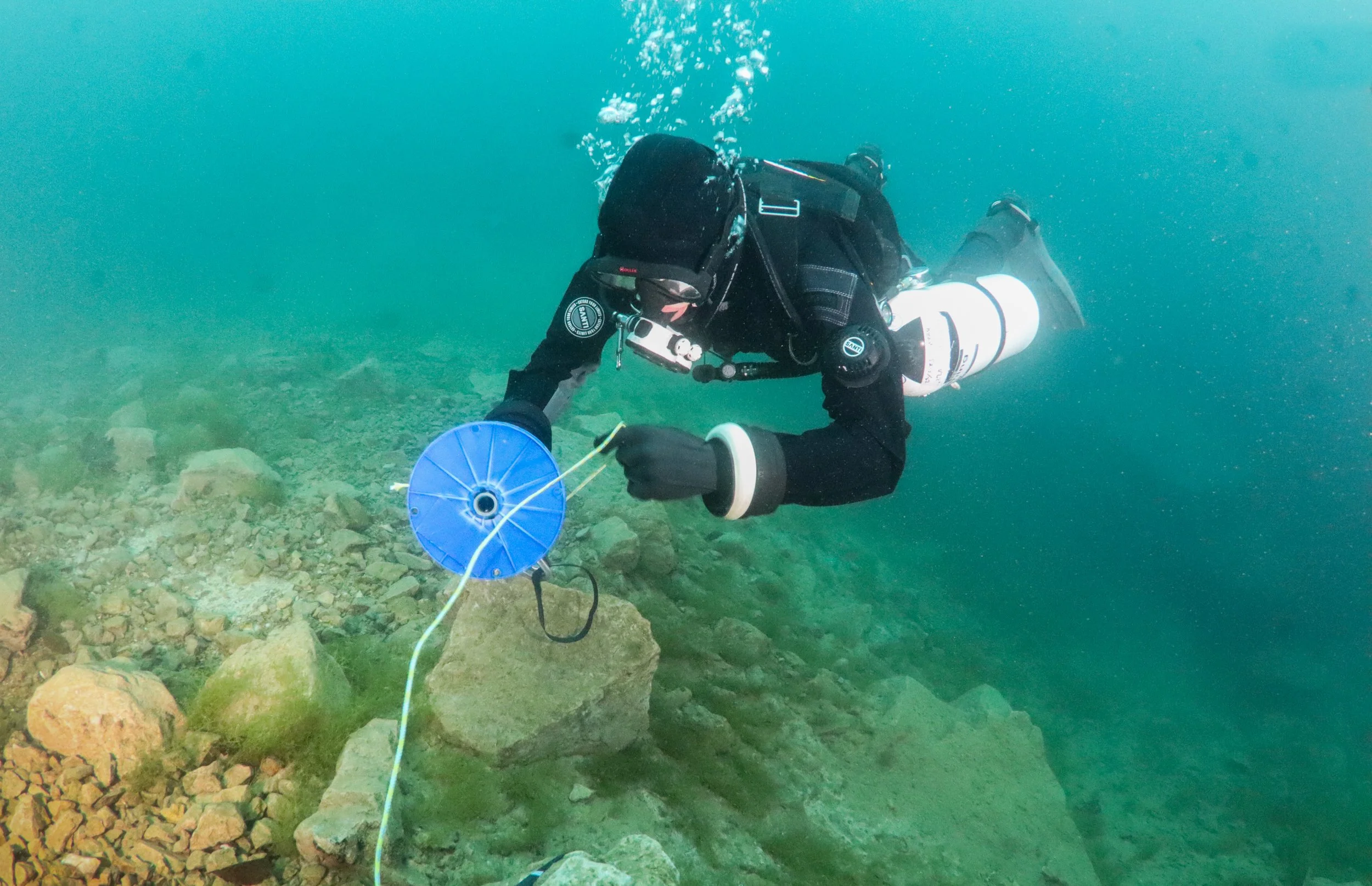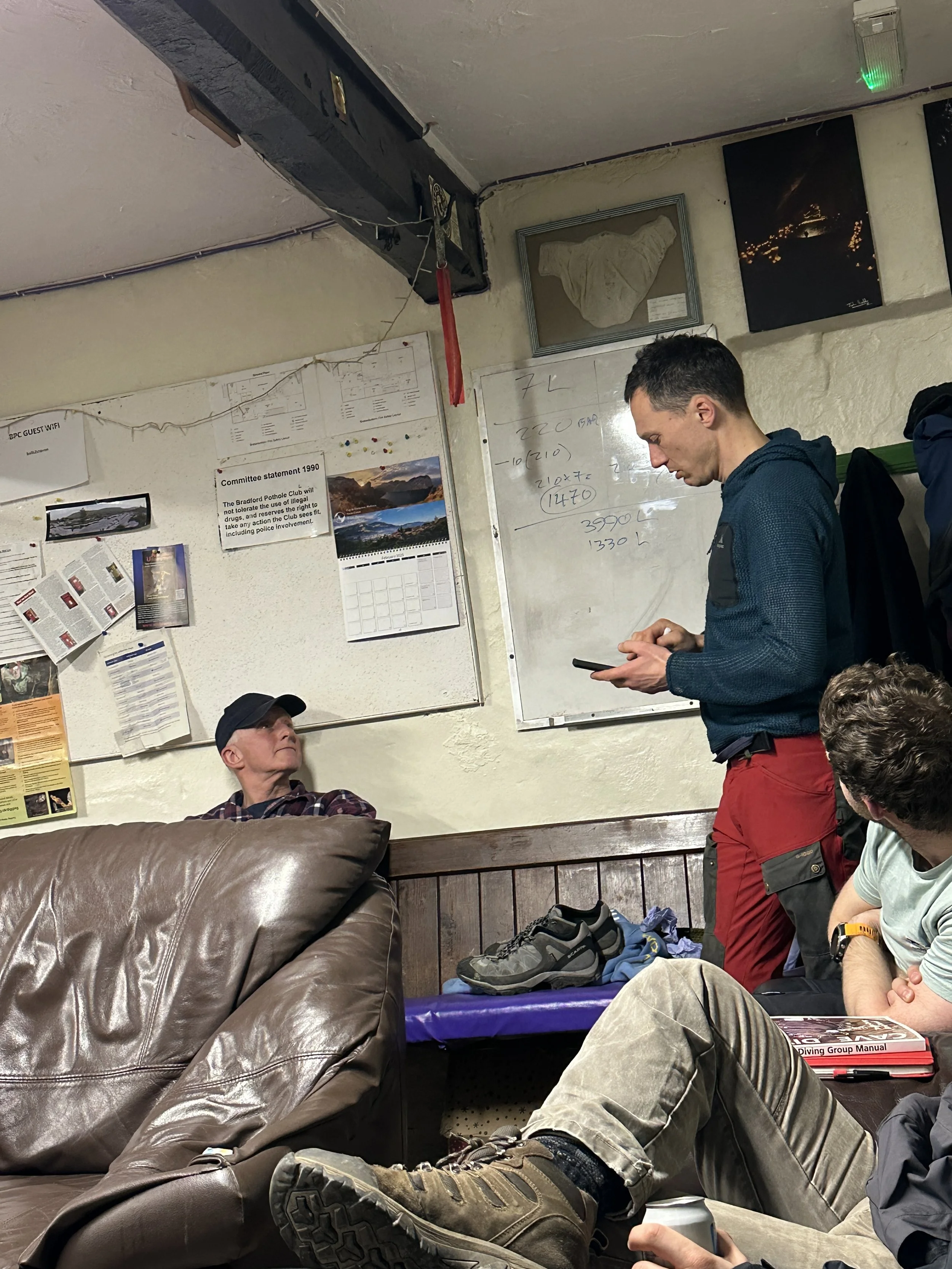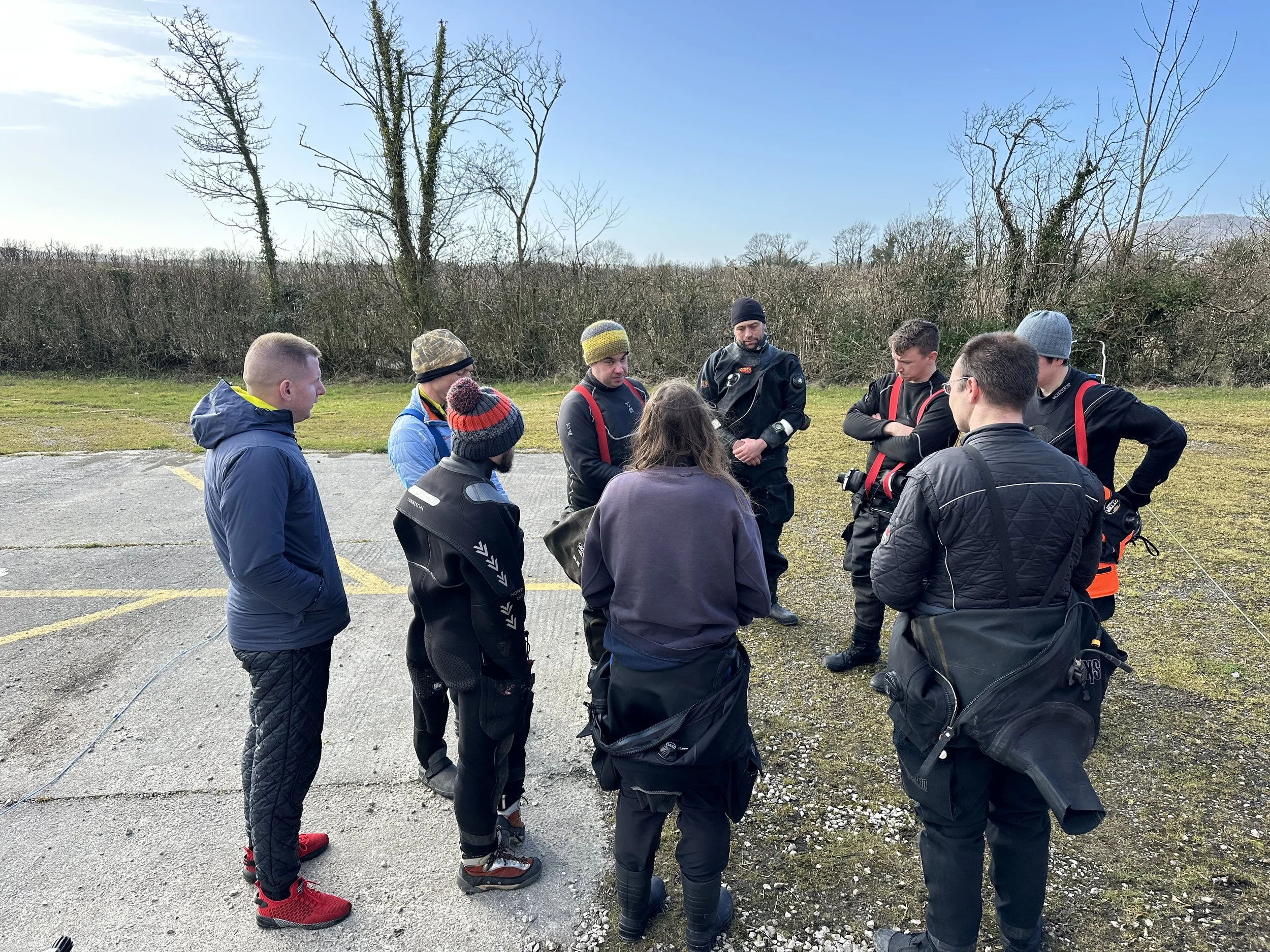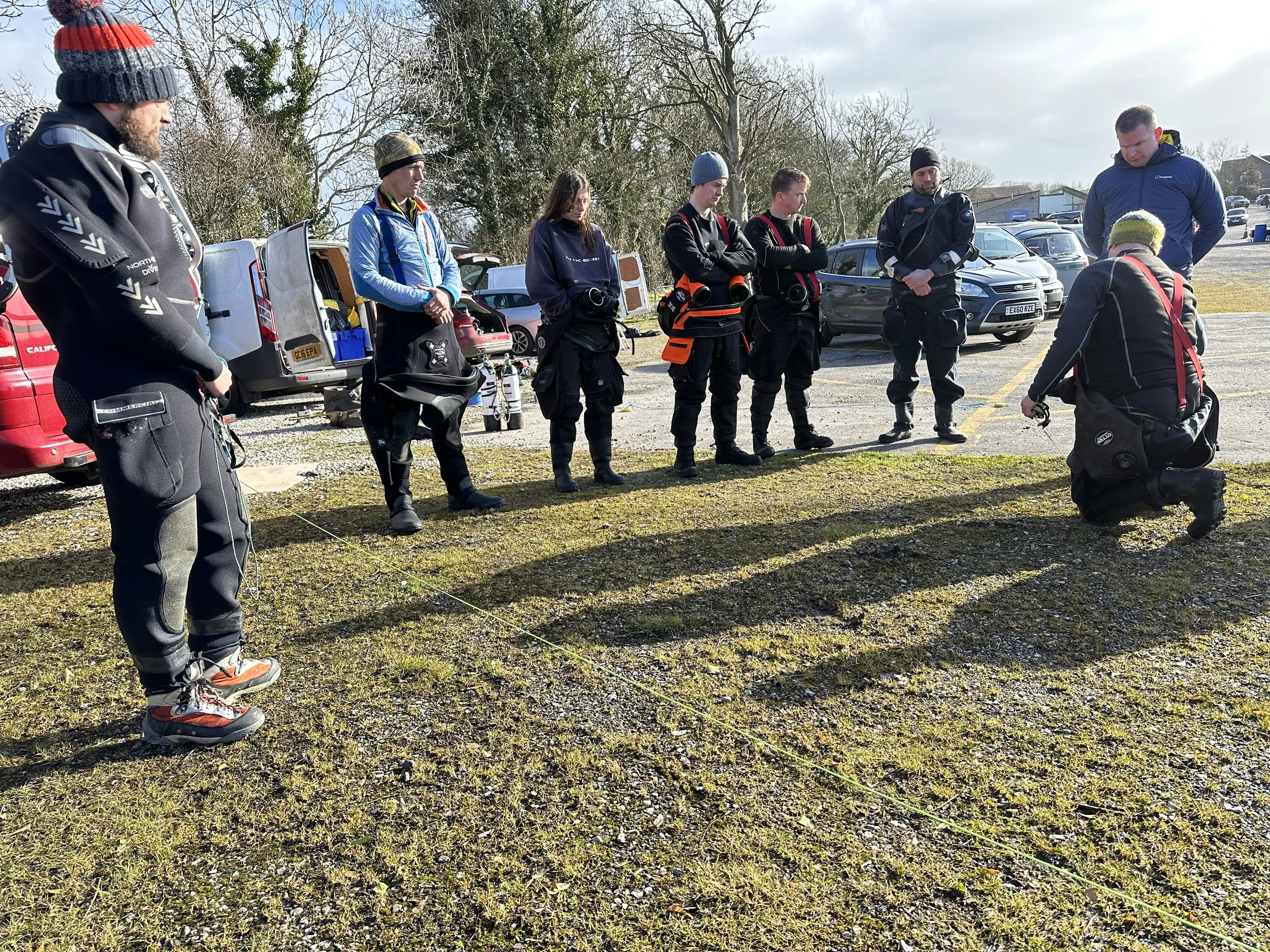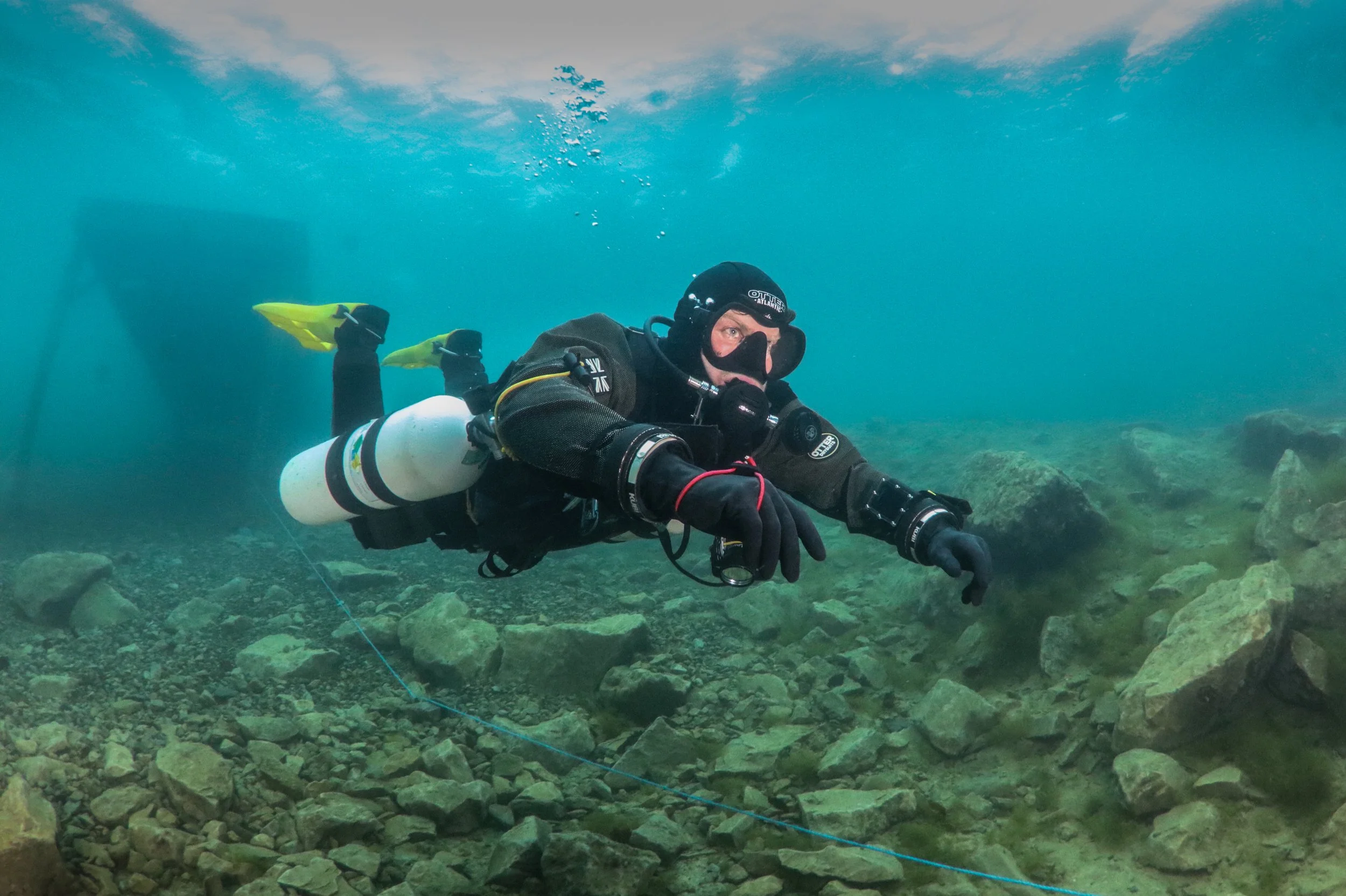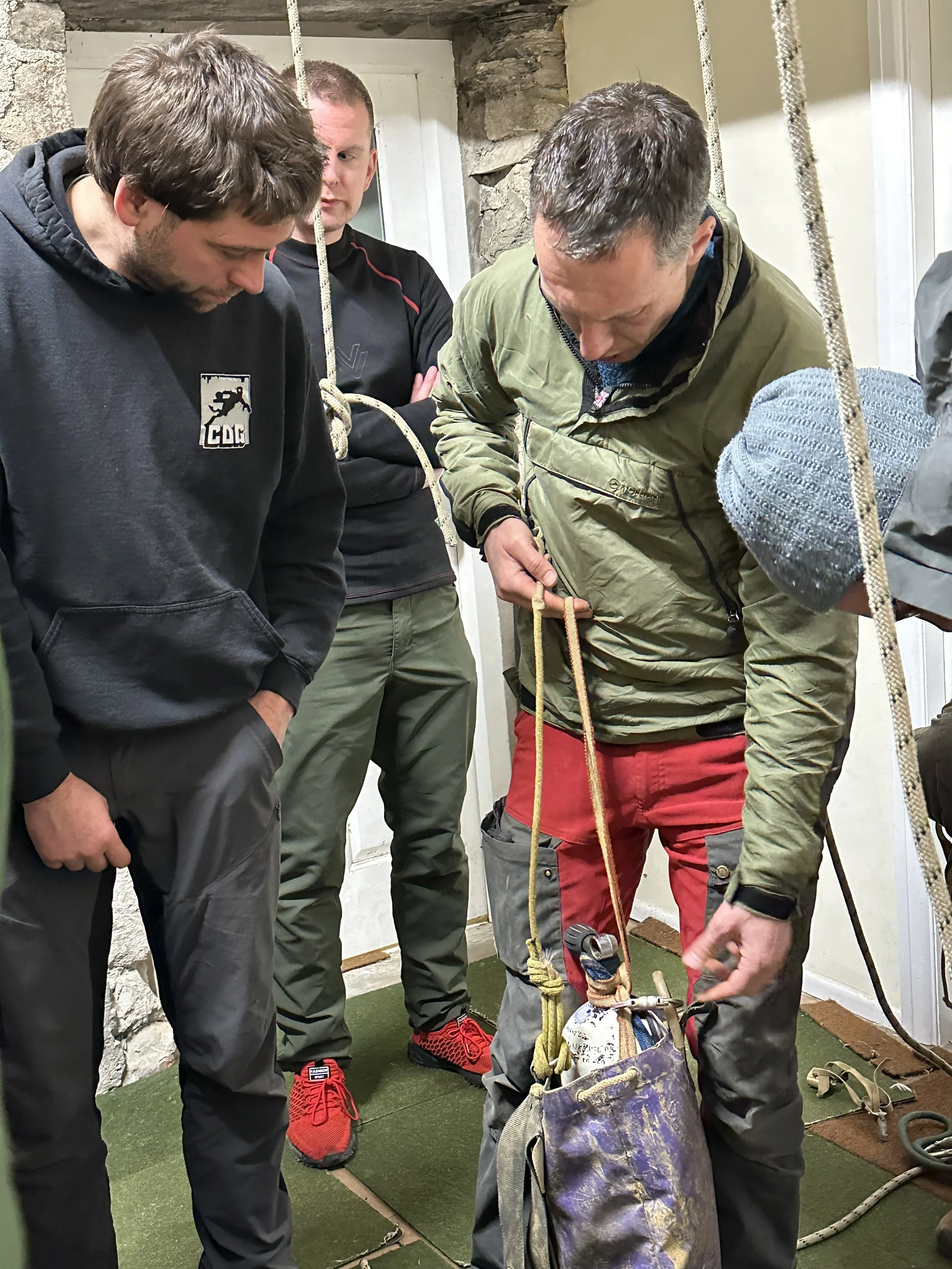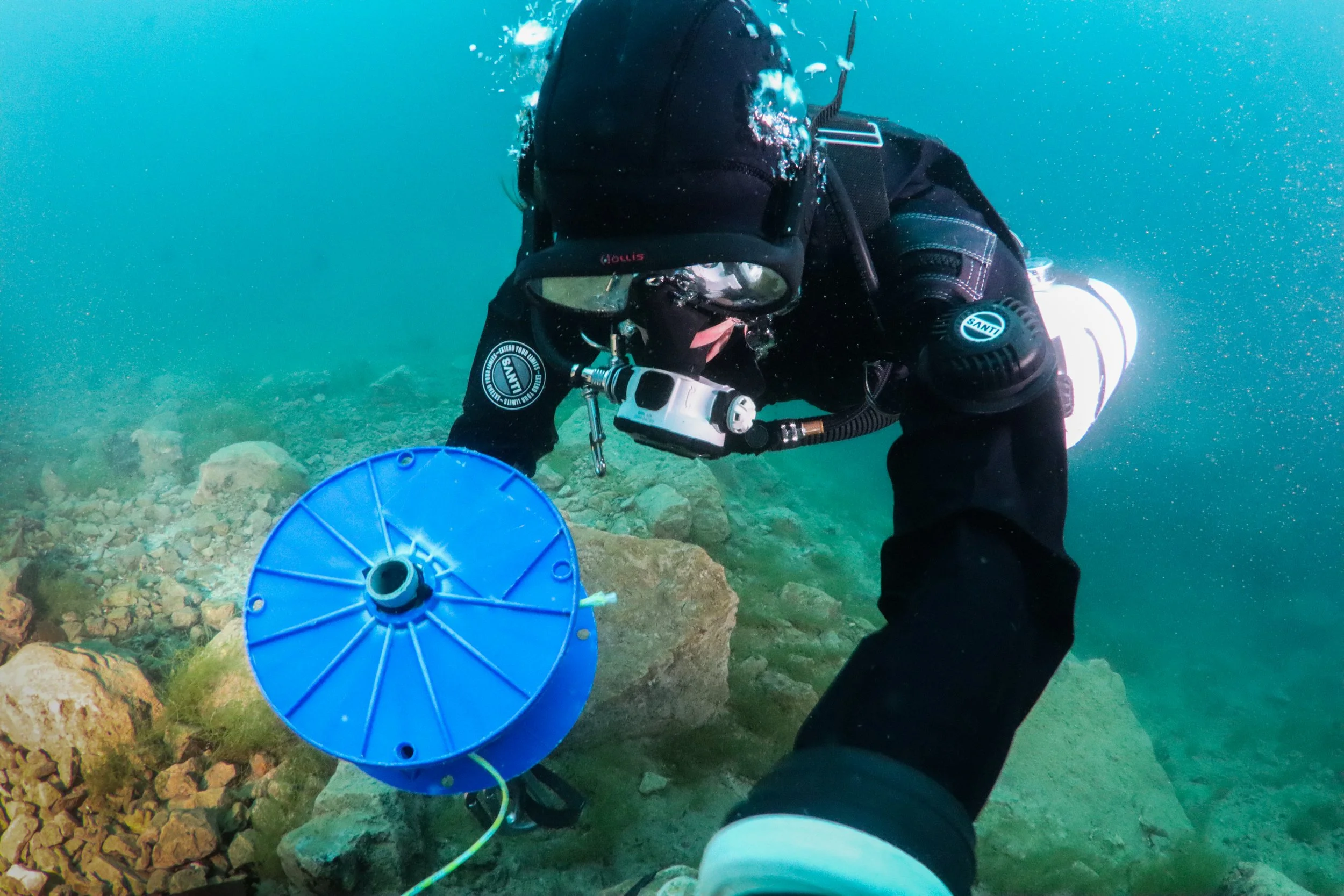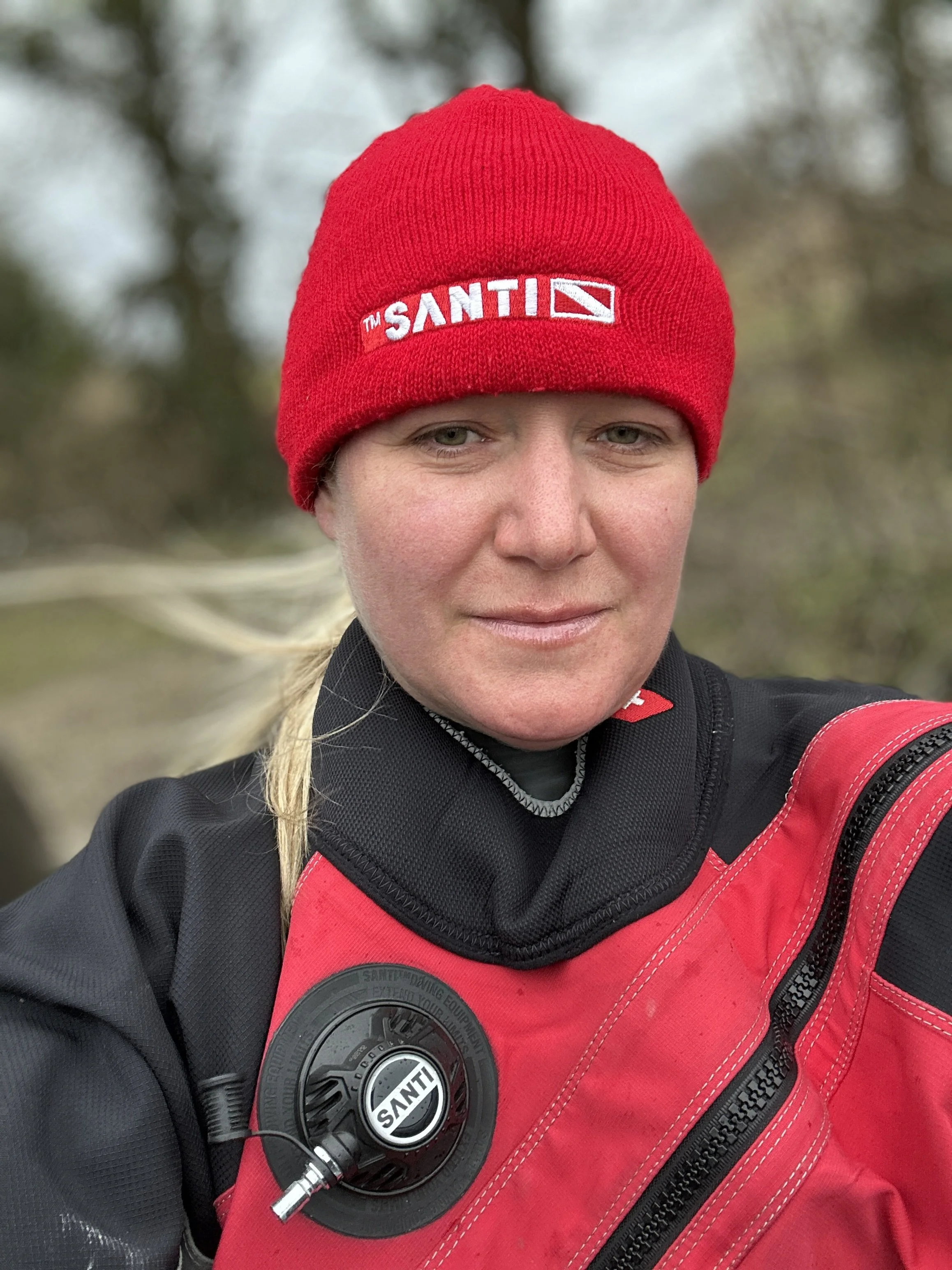Lessons Learned
“Live as if you were to die tomorrow. Learn as if you were to live forever.”
Mahatma Gandhi
The author (Christine) patiently observes a trainee conductong a valve drill. Mentors and examiners need to ensure their own solid skills before educating others.
I enjoy organising things.
Especially when others don’t want to, or do less of a good job than I can. Perhaps I should have been an events planner in another life. I love stepping back and watching my plan come together and other people benefitting from the fruits of my labour, whether that be a damn good social, a networking event, a fundraiser or an educational weekend. The latter is what I’m talking about here.
When I joined the CDG some 20 years ago, I heard mutterings about ‘training camps’. These mythical training events had, at the time, gone the same way as the annual AGM dinner for a while… whether through lack of enthusiasm, willingness or know-how to put the work in to run them, they had dwindled to almost nothing.
I decided to pull something out of the ashes and took it upon myself to throw an epic bash when it came to my CDG section’s turn to run the AGM and dinner. After this success, I decided to try my hand at running training events and from around 2008, began setting a standard of sorts for AGMs and training camps, which have now become an annual event, rotating around sections and many agree, extremely beneficial to all those who attend.
As far back as 2009 we were practising underwater stretchers at an event in Derbyshire which I organised in conjunction with Derbyshire Cave Rescue. At the time the concept of moving a diver underwater on a stretcher, using a full-face mask, was snubbed and rubbished by other divers in the group and deemed unlikely to be of any use. Apparently, we were wasting our time.
How things change.
Remember Thailand?
It is not enough to put on food, booze and arrange a date and time. These events are rare and getting CDG members together in one place at one time is very much like herding cats. Once you’ve got them, you have to make the most of every moment.
Make a plan.
Then make a Plan B when things conspire to ruin your original plan.
Get friends on your side. Involve other people, even if you don’t necessarily see eye to eye, but if you have the same common goal and the same genuine desire to keep trainee cave divers alive and out of trouble, then differences need to be put to one side and the job in hand takes priority.
Such an event was arranged in February this year (2025) by the Derbyshire section. The lessons to be learned from these training events are not just the diving skills and diving related theory for the trainees. But also for the organisers, mentors and examiners. If we do not continue learning, then these events lose momentum and it’s not hard for a year to zoom by without one. We need to be passing the baton onto our newer qualified divers to have the confidence and the knowledge to keep aloft of delivering quality training. Articles like this one, which I wrote and is published in the CDG newsletter in the third person, go a long way to helping with this and critical analysis should make sure we simply get better at it each time.
Once word got out about our training weekend, a few members of other sections asked if they could join in. I would never turn a cave diver away from a training event, so we welcomed them.
A new trainee gets to grips with thicker line used in British caves. Image: Christine Grosart
When, where, why and who.
The Derbyshire Section of the CDG hosted a training event in the North, over the weekend of 21-23 February 2025.
Section secretary Jack, set about organising logistics and the base was the Bradford Pothole Club and Capernwray Dive centre in Lancashire.
The reasons for the event were twofold: The Derbyshire Section had received a flurry of interest from four prospective trainees. They had already attended a Derbyshire section meeting, so the next step was to arrange some diving with section Qualified divers and examiners.
The CDG does not have a structured programme as such or guidance for coaching mentors in how to deliver training, both above and underwater. Mentoring and delivering training does not come naturally to everybody, yet there is an expectation of qualified divers to do it. So, the section is actively working towards giving this area attention.
The weekend was an opportunity to tackle both challenges under the guidance of examiners, training officers and experienced mentors.
Productive dive training has a simple format:
- Theory – why we do what we do, and how.
- Dry land drills. These begin with demonstrations, usually worked through in slow time, by the mentor, then handed to the trainee for as many attempts as they wish to master the skill before taking it underwater. Dry land drills offer the opportunity to ask questions, clear up misunderstandings and hone muscle memory of the skill. Dry land drills can be used to test capacity by adding blindfolds and using diving gloves.
- In water consolidation. The mentor gives a demonstration of the skill in water with the trainee observing, before tackling the skill themselves. The skill itself by now should be a formality and the emphasis on the capacity of the trainee to conduct it while maintaining control in the water (buoyancy, trim and positioning) and without disturbing the visibility where possible.
On the Friday evening, divers arrived ready for the first theory lecture of the weekend.
New trainees put through their gas calculations paces by qualified divers
Challenges
Prior to the event, the Derbyshire Section Training Officer laid out a plan for the weekend to achieve the above objectives, subject to alteration depending on QD/Trainee ratios and arrival times on the Friday.
Unfortunately, due to family issues, he was unable to attend the Friday evening session. I continued as planned to conduct the theory and dry land drill session on teaching and conducting a valve drill, with a view to progressing onto gas failure management. Running Friday sessions is clunky as often people will need to travel after work and traffic issues can cause delays. It is best to set a time and stick to it and begin the session with the majority in attendance, rather than delay it for late arrivals and curtail the session. In the end, everyone made the start of the session within 10 minutes.
The water in Capernwray was 5 degrees, so dives were well briefed, and equipment checks done as much as possible on the surface to maximise in-water time which was sensibly kept to 30 minutes.
Surface briefs. Keep them short, concise and to the point - especially in freezing conditions!
What we did
The valve drill is a skill that was demonstrated first using cylinders with regulators on, then each prospective trainee was given the opportunity to try it themselves. The value of the drill is to get divers new to sidemount, used to operating valves, breathing a regulator line down to empty, switching regulators, then re-opening the valve and conducting a flow check to reinstate a fully open status of the cylinders.
This drill can then be introduced underwater and the diver’s capacity increased incrementally by paying attention to neutral buoyancy, trim, staying in one place, remaining in contact with the line and blindfolded.
I then covered simple gas laws, such as Boyles Law, Daltons Law and Henry’s law. The group showed good prior knowledge of these, and we had a great starting point for the weekend ahead.
Further to this session, I showed some carefully selected video clips, to open discussion on the value of control in the water column and with some key points delivered, especially for mentors, on how to identify and rectify problems with the diver’s balance, buoyancy and comfort. This is imperative to master first, before dealing with emergency scenarios and line work in an overhead environment.
Ahead of the first day’s diving on the Saturday morning, the group received notice that the DS training officer would no longer be able to make the weekend at all.
As NS training officer and DS examiner, Ben and myself stepped up to make an adjusted plan for the days diving. The original plan had been that both DS examiners would get to dive with the prospective trainees. Now, only I was available, the plan was altered to maximise efficiency as much as possible. This was supported by DS qualified divers who stepped up to take on supervisory roles.
Following the first dive, feedback was given that was very positive and the divers were deemed good enough to begin some cave diving skills underwater. Ben used the lunch break to conduct a dry land drill for lost line searches and broken lines, which gave the re-shuffled teams an opportunity to begin some cave diving safety skills.
Skills and drills are consolidated on the surface before heading underwater.
Each team had an underwater camera and video feedback was given during the evening, which is particularly valuable when divers are blindfolded during a drill.
In the evening, supper was prepared by the prospective trainees and a large group settled in for an evening lecture by Ben on basic gas management. This included the use and limitations of the thirds rule, group worked examples on gas calculations with uneven starting pressures and different cylinder sizes. This was rounded up with a brief on the Temperature/Pressure phenomenon.
Sunday morning began with a dry land drill, teaching the basics of line laying from Ben. Rob (QD) took a more experienced trainee cave diving and everyone else made their way to Capernwray for day 2.
I had the opportunity to dive with a 3rd prospective trainee and in doing so, the objective of an examiner being able to assess the potential new trainees in open water had almost been achieved.
Other QDs set about mixing and matching divers and conducting lost line and line laying lessons underwater with video feedback. The weather conditions deteriorated alarmingly with extremely high winds causing waves on the quarry lake and making surface conditions worse than underwater.
Divers remained sensible and were concise about the underwater work and ensured they warmed up properly in between dives. Cold divers do not learn!
The occasional guest from other sections showed up to join in as well. Water temp: 6 degrees. Image: Christine Grosart, Canon R100 & Ikelite housing.
Lessons learned – (relates to running the event, not the actual lessons!)
1. Have a plan B. If key personnel are suddenly unable to attend, the event still needs to go ahead, and I am eternally grateful to Ben for stepping in seamlessly to assist and make the weekend flow as if nothing had happened.
2. Set up your classroom and bring it with you. The requested projector did not materialise and so we got lucky on the Friday, that the BPC happened to have one - and a screen. Their whiteboard also came in handy. To avoid lucky escapes in future, we will be purchasing a bunch of section teaching tools that can be easily transported or even posted around the country for training events. As one QD quite rightly said, we need to invest in our trainees. A load of people squished round a laptop is not great for learning.
3. Don’t assume new divers will be prepared for British diving conditions. One diver turned up with an inadequate undersuit for the water temperature and as a result, lost one dive. Also, don’t assume everyone has dived sidemount before. By doing some homework and meeting the prospective trainees first, we were prepared and had a full set of equipment to loan to a diver to get them started in sidemount.
4. Not everyone is born to teach. Some need assistance in their own lesson delivery skills, which is always an ongoing life lesson and to deliver lessons underwater and keep a trainee safe, it is imperative that you have solid diving skills yourself.
Do not involve line work until the basic foundation of diving skills has been consolidated. Divers cannot add value to underwater mentoring if their own basic skills require attention.
5. Delivering theory and dry land practical sessions also requires planning and the educator needs to put time and work into preparing the lesson, especially if it has been some time since they conducted it. I fell foul of this myself when I automatically defaulted back to a different muscle memory during a drill demonstration. I had not prepared enough and did not think I would be alone in delivering the lesson.
The late and great Dr Oliver ‘Cromwell’ Lloyd, who also had a passion for education. Image: Unknown, taken circa 1983 at Wookey Hole.
6. Communication is king. CDG divers typically dive solo and rarely pay any attention to underwater communication. When they do, it is commonly confused and misunderstood. Even in clear, open water and daylight, this was very apparent. To teach and train, communication is essential, and it is really not very difficult to have a 5-minute discussion beforehand with a trainee, on what signals you are likely to use for the session and what they mean. Do a practise run in the car park to ensure that signals are understood. If you find this difficult, pre-write clearly on some wetnotes some instructions and feedback that you can point to. Things like ‘Repeat the skill’, ‘Watch me’ and ‘Now you do it’ are common and easy to articulate underwater. One trainee commenced a valve drill underwater when I asked for a flow check. I didn’t stop him and quickly adapted, letting him complete it. It wasn’t fair to stop him because I had not explained the signals properly and ensured they were understood prior to the dive. There was no point telling him he did the wrong drill, because it was my fault.
7. Give clear and concise feedback in short, manageable chunks. On surfacing from the dive, give a few positive points of feedback first then let them know the areas you will be covering later for improvement – then get out of the water. Cover the finer learning points in detail in the warm and in front of the video, if you have it.
Never say ‘So, how do you think that went?!” It is unhelpful and offers no value. Critical feedback is often hard to take, especially when you have been trying your hardest and don’t know what you don’t know. Conscientious trainees will beat themselves up before you do, so ensure they have some positive encouragement, no matter how hard it may be to find!
Learning to teach can be taught. There are various options for those wanting to improve their techniques, but one that comes highly recommended is: Level 3 Award in Education and Training, which costs around £200. It may be possible to ask your employer to enrol you if your job is aligned…you never know.
The biggest difference and shift in the training during this weekend was the focus on not only the trainees, but the mentors and this is something we would like to continue and improve on.
We requested feedback after the event from the attendees and this is what some of them had to say:
Evening time was well utilised, with a workshop in packing and hauling cylinders in caves, using the vertical cave training facilities atthe Bradford Pothole Club.
F: "The weekend has been fantastic. The mixture of practical scenarios and theory was well balanced. The opportunity to receive immediate feedback following a practical has been great and aided in development.
On Sunday, I was given the chance to experience my first sump dive in a suitable venue. Being able to experience the dive planning, gas calculations, kit selection and the dive itself has been amazing."
S: “The only piece of constructive feedback I have may be quickly resolved once I start actually diving in caves...
The out of water line laying was very useful but knowing what a good or bad belay is in the water wasn't immediately obvious to me.
My supervisors corrected my bad belays or re-laid some line for me in the water, but a few pictures would help me understand what 'good' and 'bad' ones look like in a representative setting. It was obvious once I saw the corrections. I just need to get my eye in...”
M: “As a prospective member, apart from the skills learning and social element, the real positive from my point of view was putting faces to names.
In this case, in the literal sense of getting to know members of the CDG (Derbyshire section in particular) but also in a more general sense. Coming from a diving background, I have long been aware of the CDG, read articles on the website and heard stories.
Despite never having dived a sump, I came to the weekend with some sense of what might be involved, the critical self-reliance, the mentoring model, how CDG approaches diving in UK sump conditions, something of the mindset and the variety of solutions members adopt to overcome common challenges.
To see this first hand, to get involved with members of the section and to even practice key skills in the open water has been really informative. It has confirmed some of what I expected, demystified parts and corrected others. Overall, it has made the prospect of sump diving through the CDG a more tangible, real prospect whilst also provoking thought on how to evaluate, weigh up and mitigate the very serious inherent risks involved.
Overall, it was an excellent weekend and hopefully the CDG will continue holding these for all levels of members involved.”
G (QD): “While it was originally planned to be an event for prospective new DS members, in the end we had prospective members and trainee divers from 3 Sections of the CDG. Christine Grosart (Derbyshire Section Examiner) and Ben Wright (Northern Section Training Officer) both provided excellent evening talks on the Friday & Saturday evenings at the Bradford Pothole Club.
Both days of the practical training sessions were held at Capernwray. On dry land Ben provided an excellent tutorial on search reel techniques. Then QD’s and trainees were split into teams for the underwater training exercises; valve drills, buoyancy, line laying, line following and other practical drills.
I especially benefited from Christine’s advice on buoyancy techniques that have somewhat eluded me for so many years! I feel I remain a lost cause on that topic. (We can work with it – Chris)
All in all, it was an excellent weekend. A special thank you goes to Jack Dewison for organising the weekend and spending much of his time herding the CDG cats.”
New trainee getting to grips with bigger reels and thicker line. Image: Christine Grosart
C: “I spent the weekend at the CDG training weekend. The weekend involved a mix of learning, freezing and a lot of good company.
Each hour of the day was made use of, with evenings spent discussing dive skills and dive goals. Topics were discussed at length, including everything from gas planning to problem solving.
The days were spent in the water at Capernwray where we experienced a whole years’ worth of seasons in a weekend. Saturday, beautiful sunshine and Sunday, torrential rain and 45mph wind. But once under the water it was all the same and all about the drills, each tailored to use in a UK cave. Shutdowns, valve drills, and laying the thickest line I had ever seen.
The weekend was a blast, but the best part was the people. Everyone was welcoming, supportive and up for a laugh. I had once heard that a cave diver sits on a chair with their ego on a shelf behind them, but this weekend couldn't have been further from it. Just nice talks over a shared passion.”
“Tell me and I forget, teach me and I may remember, involve me and I learn.”
Benjamin Franklin
The author












